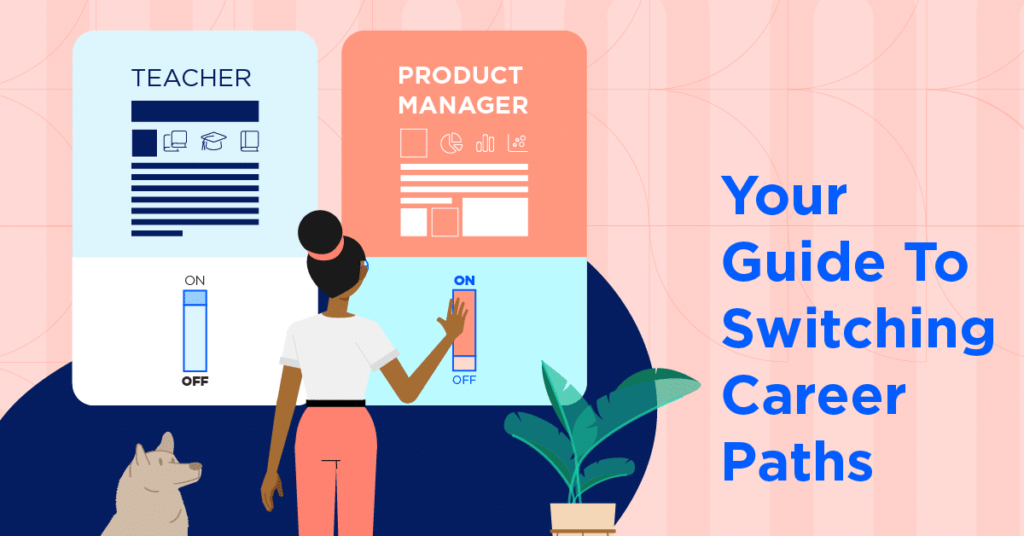
In the wake of the Covid-19 pandemic, an interesting new statistic has emerged: 27% of students and graduates surveyed in the United Kingdom said the lockdown has had a significant impact on how they view their lives and has led them to rethink their careers. Reasons given included the increase in training and development opportunities and wanting to find a career that offered a better work-life balance.
Young people aren’t the only ones considering a career change. The UK Office of National Statistics published a report showing that 58% of workers aged over 50 years – who left employment since the start of the pandemic – are considering returning to work but are looking for jobs offering flexible working hours (32%), better pay (23%), and opportunities to work from home (12%). Incidentally, these are the professional values the tech industry provides in droves.
Considering a career change into tech?
Looking at the World Economic Forum’s Future of Jobs Report, the penetration of AI into virtually every industry is set to replace around 85 million jobs worldwide by 2025. That sounds alarming but in reality is a huge opportunity for those thinking of changing careers, especially if you’re drawn to a job in tech. The salaries are attractive, the work is stimulating, and very few other sectors can compete in terms of job security.
Not having a background in tech is also no longer a significant hurdle to making a career change into a digital field, and you don’t have to start at the bottom either. A background in finance, for example, sets you up for a job as a data analyst; a graphic designer can easily become a web designer, and a small business owner can quickly catch onto product management. Wise moves make career changes all the more accessible, and the barrier to entry may be less daunting when you consider your existing strengths.
What to consider before switching careers
Whether you’re in your 20s or approaching the half-century mark, it’s never too late to make a career switch and do what you love. The challenge, however, is knowing where to begin. If you’re ready for a change of career, follow along as we guide you through the five important career-switching steps that will greatly increase your chances of success.
1. Know yourself and discover your superpower(s)
One of the most important steps when considering a career change is to do some introspection. Jot down your interests, skills and values, what you’re good at, and where you want to go. Evaluate both your hard and soft skills and isolate those that are transferable. List positive feedback you’ve received and ask others for their objective opinion about what you’re good at.
Tracy Shuff, Career Coach at FourthRev has some great tips on how to get to know yourself. Her advice is relevant regardless of which direction you’re going in.
Transferable skills are those that enable you to do your job well, whatever it may be. They are personal skills that can be transferred between jobs, departments, and industries and are listed in almost every job posting.
In the job search Bible, Knock ‘em Dead: The Ultimate Job Search Guide, author and career guru Martine Yohn Yate lists the following as evergreen transferable skills: technical competence, communication, multitasking, teamwork, creativity, critical thinking, and leadership. If you’re considering a tech career, there are some specific transferable skills companies are looking for that should be added to the list. These are empathy, organisation, problem-solving, resourcefulness and time management.
As an example, and this goes for any industry, Randeep Sidhu, Chief Product Officer at Reliance Health, is clear when asked how easy it is to switch to a career in product management: “Easy – if you understand what you superpower is. Product Managers are like Avengers, each is different and we have each different specialist skills. Some powers are most useful in different environments, like I’m good at working in AI, Health and fast-growing start-ups. Understanding what your core skills are means that you can transition into a Product role, but only after you have mastered the basics.”
If you’re thinking of a career in tech, and once you’ve identified what skills your new career requires, the fastest route to acquiring them is by working with a career coach who can help you hone those skills and put them on your CV with confidence.
2. Are you happy in your current role/field?
You wouldn’t be considering a career change if you were happy in your job, right? This may mean the time is right for you to make the switch. See if any of these describe how you feel in your current job:
- You’ve been robbed of your confidence
- You have no work-life balance
- You’re eternally bored and don’t see a future
- You’re just in it for the money
- You stay because it’s comfortable, despite being uninspired or demotivated
- You feel undervalued
- You’re not learning or growing
- You’re don’t enjoy what you’re doing
- You’re constantly stressed
- Your place of employment’s values don’t align with yours
If you tick a couple of these boxes, the time may have come for you to not only make a job change but to rethink your entire career.
3. Research your future career
When preparing for a career change, the more research you do, the better position you’ll be in to make the right decision. Here are five actions you can take:
- Browse job boards for careers you’re considering going into and note the job requirements, skills and KPAs.
- Contact others who already work in the industry you’re interested in. LinkedIn is a great place to start, and you can also see what paths others have taken to get where they are.
- Find out about courses you could take to give you the necessary hard skills needed to make the leap.
- Speak to professional career coaches and mentors who can help you identify your strengths and weaknesses and how well you’re suited to your dream job.
- Internships, job shadowing, work placements, volunteering and part-time work are great ways to build skills and try out a job before making a switch.
4. Upgrade your skills
Once you’ve narrowed down what human skills your new career requires, look for ways to develop those you’re not that good at before making the transition.
You can read books, watch YouTube videos, or do short online courses to learn how to be a good leader. Or, if you’ve decided to make a career change to tech, you can join our Career Accelerator programmes, where you can gain both the hard and soft skills you need to take the next step. Each learner is assigned a Success Manager and Career Coach who help them understand their skills gaps, such as collaborating with peers, goal setting, and ways to present themselves with confidence.
A career change likely comes with a new set of hard skills. Tackle this by finding out whether the path requires additional education or certifications, and consider taking online courses and gaining work experience in your new industry.
With COVID-19 accelerating the need for digital skills, employers are looking for people who can hit the ground running. To this end, a project-based learning approach provides those considering a change to a job in tech with the technical, business and human skills they need to solve real-world challenges and thrive in the digital economy.
Make your career change a reality
If you’re considering switching to a tech career, we have a dedicated team that will help you identify and develop your human skills – while providing technical knowledge in high-demand technologies – to ensure a holistic approach towards career advancement.
Speak with an Enrolment Advisor to learn more about our Career Accelerators and how our career coaches and success managers can enable you to harness your transferable skills and keep you on track to meet your present and future career goals.
Book a call with an advisor on the King’s Product Management Career Accelerator.
Book a call with an advisor on the LSE Data Analytics Career Accelerator.



